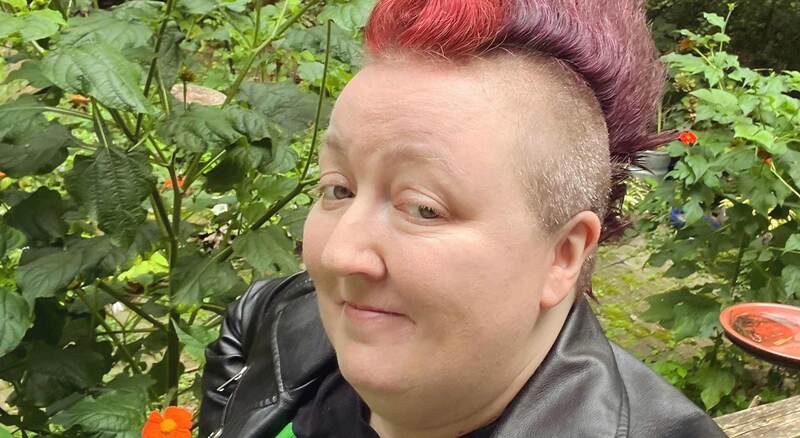You are viewing your 1 free article this month. Login to read more articles.
The insightful blindness of Nadeem Aslam
It’s October 2001, a month after 9/11, and Western armies have invaded Afghanistan. Brothers Jeo and Mikal make the decision to leave their home in Pakistan - and the woman they both love, Jeo’s wife Naheed - to go to war. Hours later Jeo is dead and Mikal has been captured by the Taliban. So begins Nadeem Aslam’s epic new novel The Blind Man’s Garden.
Born in Pakistan, but a resident of the UK since the age of 14 with his politically exiled father, Aslam says he wanted to write the novel because “we’ve lived through an extraordinary decade, starting with 9/11 and ending with the Arab Spring. Within that we have had the War on Terror, the call to Jihad, Abu Ghraib, Iraq—this bloody struggle between an incomplete understanding of the West and an incomplete understanding of the East, and I wanted to articulate all of that.
“I thought one way to do that would be to go right to the beginning and see 9/11 as a hinge moment. There is a pre-9/11 and a post-9/11 world, and I wanted to see how much the inadequacies of the pre-9/11 world affected what came afterwards—the treatment of women, the relationship between East and West and wealthy and non-wealthy - and how much those imbalances made things worse and caused most of the problems.”
The Blind Man's Garden
Despite being focused on the War on Terror The Blind Man’s Garden is, like all of Aslam’s previous novels, at its heart a love story—the journey of two lovers wrenched apart and desperate to get back to each other. After a torturous wait, Naheed and Mikal are briefly reunited and she says to him: “I have not seen you for 479 days, I feel as though I have been in 479 wars.” Aslam believes this is the key line in the book, as it is his job as a novelist to humanise the situation in Pakistan and Afghanistan, away from the political terms of “war”, “fundamentalism” and “terror”.
“We can say the Taliban will disappear tomorrow, the War on Terror will end, that the East and West will become more integrated. But what happens if during all of that they kill your brother, is it any consolation that the Taliban are gone? How do you cope with that loss? Those questions are not in a historical or political realm, but a philosophical one. If you come at your characters honestly enough, looking at the core values of each human being, you can write about anything. Because there are things we all understand: we all love, we all make mistakes, we all do good things and bad things—sometimes it seems to me that I have never got over a single thing in my life.”
The folly of youth
The novel’s three central characters are all incredibly young to be facing the horrific situations inflicted upon them. Aslam explains that The Blind Man’s Garden is actually the first of his novels to portray the hopes and ambitions of youth because “when I was younger, I never thought I was ready to write about the young. In my previous novels all my characters are older or middle-aged, because I think we underestimate the grief of the young, and I did not want to condescend my own experience. Now that I am older, my characters are getting younger and younger.
“Youth is a completely confusing time and Mikal has this dreamy intensity, and yet remains extremely noble. There is a huge vortex that youth has, before middle age and disappointment and a greater knowledge of the world sets in, and I was interested in exploring that. I wanted to see how far I could push these characters’ idealism.”
Season of the Rainbirds
Aslam describes all of his novels as like “pressure cookers”. They all highlight the struggle and balance of life’s biggest issues, and much of The Blind Man’s Garden examines the position of women in society. André Deutsch, the publisher of Aslam’s first novel Season of the Rainbirds—written when he was in his early twenties—originally thought he was a woman based on the strength of his female characters, and because “the book was so concerned with the strength and plight of women".
In The Blind Man’s Garden, it is the brave and tough Naheed that is left behind when Jeo and Mikal plan their heroic and naive trip to Afghanistan and for Aslam, she is “probably the best thing I have written”.
“My impulse as a novelist is to never leave a broken person behind, you cannot leave the dispossessed alone. The position of women in Afghanistan and Pakistan, and the inequalities they face, are so stark; you can really see how an attempt is made by them, within a corrupt society, to live a dignified life—which is what all the women in my life try to do. In this novel I loved writing the progression of Naheed from a naive young girl to a confident young woman. She is probably my favourite character so far.”
It took Aslam more than a decade to write his second novel Maps for Lost Lovers, which was longlisted for the Booker Prize in 2004, and although The Blind Man’s Garden only took a mere four and half years, he most definitely suffered for his art.
Rohan, the patriarch of the novel and the titular blind man in the garden, loses his sight at the same time he loses his sons. For the last three years of the writing process, Aslam spent one week of each year with his eyes sellotaped shut and he says, “that so much of what I learnt during those weeks ended up in the novel. I am my writing. My writing has cost me everything: my youth, most friendships, most loves . . . there comes a choice, and during the past 20 years there hasn’t been a single hour in my life when I haven’t been thinking about writing.”
The Blind Man's Garden by Nadeem Aslam is published by Faber















